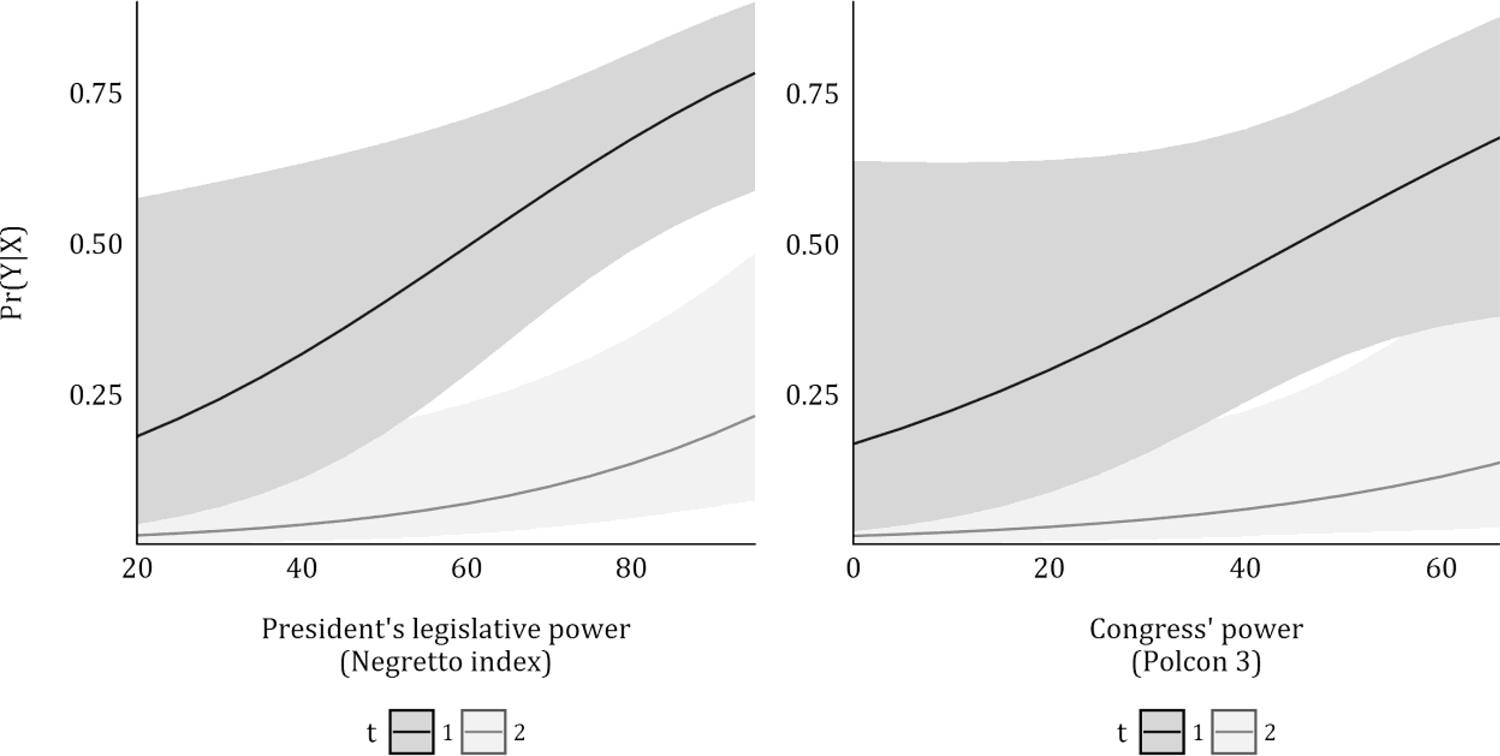Research on executive-legislative relations in presidential systems have emphasized how presidents use cabinet appointments to form and manage government coalitions in the absence of majority legislative support. Yet not all coalitions are similar, as some are larger and, consequently, more prone to agency and coordination problems than others. But what shapes presidents’ decision to include more parties in their coalitions? While several hypotheses exist in the literature, few have been tested in a systematic fashion, none focusing on why surplus coalitions form. This article intends to fill this gap by examining an original time-series cross-sectional dataset comprising 168 unique coalitions in all 18 Latin American presidential countries since 1979. In particular, I find that highly fragmented party systems and presidents with great legislative powers are more likely to generate oversized government coalitions. An additional analysis, with monthly data from Brazilian cabinets between 1989 and 2010, also shows that supermajority rules and bicameralism dynamics play a role in the occurrence of surplus coalitions, but party discipline and presidential approval do not.
Government coalitions; Presidentialism; Executive-Legislative relations; Latin America

 Sources: Dataset_Meireles. Available at bpsr.org.br/files/archives/Dataset_Meireles.
Sources: Dataset_Meireles. Available at bpsr.org.br/files/archives/Dataset_Meireles.
 Sources: Dataset_Meireles. Available at bpsr.org.br/files/archives/Dataset_Meireles.
Sources: Dataset_Meireles. Available at bpsr.org.br/files/archives/Dataset_Meireles.


